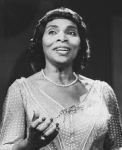Previous posts have reviewed many aspects of the lives of Edward B. Burling, a prominent Washington, D.C. attorney, and of Joseph Welch, a prominent Boston attorney. (See Appendices A and B.) Those posts are the result of extensive research over many years and in many places besides Internet research on my home computer. Now I share how that research and writing has brought joy to my life. [1}
In 1982 I took a sabbatical leave from my Minneapolis law firm (then Faegre & Benson; n/k/a Faegre Baker Daniels) to teach a course about law at my alma mater, Grinnell College, and in my spare time I examined materials in the College Archives about these two gentlemen.
While on a business trip to Boston in 1985 I found spare time to examine a collection of Joe Welch Papers at the Boston Public Library. While focusing on those relating to the Army-McCarthy Hearings, I happened upon letters between Welch and Burling.
In 1986 I returned to Boston to attend the Harvard Law School’s Summer Program for Lawyers and discovered in Harvard’s collection of the papers of Learned Hand, an eminent federal judge and one of my legal heroes, that he and Burling had been law school contemporaries and life-long friends. This further spurred my interest in Burling as I read their extensive correspondence. On this occasion I also visited Welch’s law firm and interviewed some of the other lawyers who were involved in the Army-McCarthy Hearings.
When I retired from the active practice of law in the summer of 2001, one of my future projects was to review all of the information that I had gathered and write articles about the two gentlemen, and I mentioned this project in an essay about retirement that was posted on the Internet by another law school friend as part of materials for a lawyers’ seminar.
In 2005 I was inspired to finish these papers when I received a totally unexpected call from Professor Roger Newman, the biographer of Hugo Black and a member of the faculty of Columbia University. Newman said that he was the editor of the forthcoming Yale Biographical Dictionary of American Law and asked if I would be interested in writing short biographies of Welch and Burling for that book. Newman said he had discovered my interest in these men from the just mentioned essay on the Internet. I said that I would be glad to do so.
I then retrieved my materials, did additional research and wrote the two 500-word biographies. (This Biographical Dictionary, which was published in 2009 by Yale University Press, was the first single-volume containing concise biographies of the most eminent men and women in the history of American law who had devised, replenished, expounded, and explained law. See Yale University Press, The Yale Biographical Dictionary of American Law (ISBN 978-0-300-11300-6),
These sketches, however, barely scratched the surface of what I wanted to say about Burling and Welch.. As a result, I did further research, including examination of several collections of original papers at the Library of Congress. My research about Burling and Welch now has been documented in multiple posts to this blog.
My interest in these two men was sparked by my sharing with them growing up in small Iowa towns, graduating from Grinnell College and prestigious law schools and becoming lawyers in major law firms in different cities and by meeting Burling in 1959 and hearing Welch speak at Grinnell in 1957. My research and writing about them enabled me to use my legal skills in projects that were personally important to me, rather than those that were driven by clients and courts. The research also produced many thrills of discovery, including some totally unrelated to these two men.
I am grateful that I have found great joy in doing this research and writing.
=============================================
[1] An earlier version of this post was published as Adventures of a History Detective (April 5, 2011).
Posts about Edward B. Burling to dwkcommentaries.com (Appendix A)
Katherine Graham’s Connections with Harry Hopkins and Edward B. Burling (Feb. 13, 2018), https://dwkcommentaries.com/2018/02/13/katharine-grahams-connections-with-harry-hopkins-and-edward-b-burling/
Edward B. Burling’s Early Years in Iowa, 1870-1890 (Feb. 17, 2018), https://dwkcommentaries.com/2018/02/17/edward-b-burlings-early-years-in-iowa-1870-1890/
Edward B. Burling’s Years at Harvard University, 1890-1894 (Feb. 18, 2018), https://dwkcommentaries.com/2018/02/18/edward-b-burlings-years-at-harvard-university-1890-1894/
Edward B. Burling: The Chicago Attorney, 1895-1917 (Feb. 19, 2018), https://dwkcommentaries.com/2018/02/19/edward-b-burling-the-chicago-attorney-1895-1917/
Edward B. Burling: The Federal Government Attorney, 1917-1918 (Feb.20, 2018), https://dwkcommentaries.com/2018/02/20/edward-b-burling-the-federal-government-attorney-1917-1918/
Edward B. Burling: The Prominent Washington, D.C. Attorney, 1919-1966 (Feb.21, 2018), https://dwkcommentaries.com/2018/02/21/edward-b-burling-the-prominent-washington-d-c-attorney-1919-1966/
Edward B. Burling’s Life-Long Friendship with Learned Hand (Feb. 22, 2018), https://dwkcommentaries.com/2018/02/22/edward-b-burlings-life-long-friendship-with-learned-hand/
Edward B. Burling: The Character of the Man (Feb. 25, 2018), https://dwkcommentaries.com/2018/02/25/edward-b-burling-the-character-of-the-man/
The Joy of Researching and Writing About Edward B. Burling and Joseph Welch (Feb. 26, 2018), https://dwkcommentaries.com/2018/02/26/the-joy-of-researching-and-writing-about-edward-b-burling-and-joseph-welch/
Posts About Joseph Welch to dwkcommentaries.com (Appendix B)
Joseph Welch Before the Army-McCarthy Hearings (June 14, 2012), https://dwkcommentaries.com/2012/06/14/joseph-welch-before-the-army-mccarthy-hearings/
The U.S. Army’s Hiring of Attorney Joseph Welch for the Army-McCarthy Hearings (June 8, 2012), https://dwkcommentaries.com/2012/06/08/the-u-s-armys-hiring-of-attorney-joseph-welch-for-the-army-mccarthy-hearings/
U.S. Senator Joseph McCarthy’s Nemesis: Attorney Joseph Welch (June 4, 2012), https://dwkcommentaries.com/2012/06/04/u-s-senator-joseph-mccarthys-nemesis-attorney-joseph-welch/
Attorney Joseph Welch’s Performance at the Army-McCarthy Hearings (June 6, 2012), https://dwkcommentaries.com/2012/06/06/attorney-joseph-welchs-performance-at-the-army-mccarthy-hearings/
President Dwight D. Eisenhower’s Involvement in the Army-McCarthy Hearings (June 12, 2012), https://dwkcommentaries.com/2012/06/10/president-dwight-d-eisenhowers-involvement-in-the-army-mccarthy-hearings/
President Eisenhower’s Secret Campaign Against Senator Joe McCarthy (July 27, 2017), https://dwkcommentaries.com/2017/07/26/president-eisenhowers-secret-campaign-against-senator-joe-mccarthy/
Joseph Welch After the Army-McCarthy Hearings (June 12, 2012), https://dwkcommentaries.com/2012/06/12/joseph-welch-after-the-army-mccarthy-hearings/
U.S. Senator Joseph McCarthy Encounters Langston Hughes at Minneapolis’ Guthrie Theater (May 13, 2012), https://dwkcommentaries.com/2012/05/13/u-s-senator-joseph-mccarthy-encounters-langston-hughes-at-minneapolis-guthrie-theater/
Legal Ethics Issues in the “Anatomy of a Murder” Movie (June 27, 2012), https://dwkcommentaries.com/2012/06/27/legal-ethics-issues-in-the-anatomy-of-a-murder-movie/
The Joy of Researching and Writing About Edward B. Burling and Joseph Welch (Feb. 26, 2018), https://dwkcommentaries.com/2018/02/26/the-joy-of-researching-and-writing-about-edward-b-burling-and-joseph-welch/











